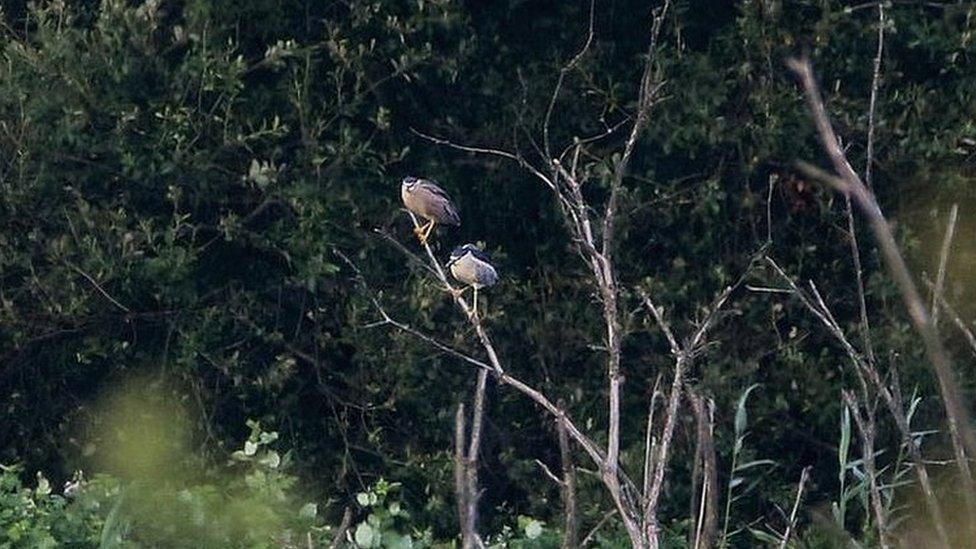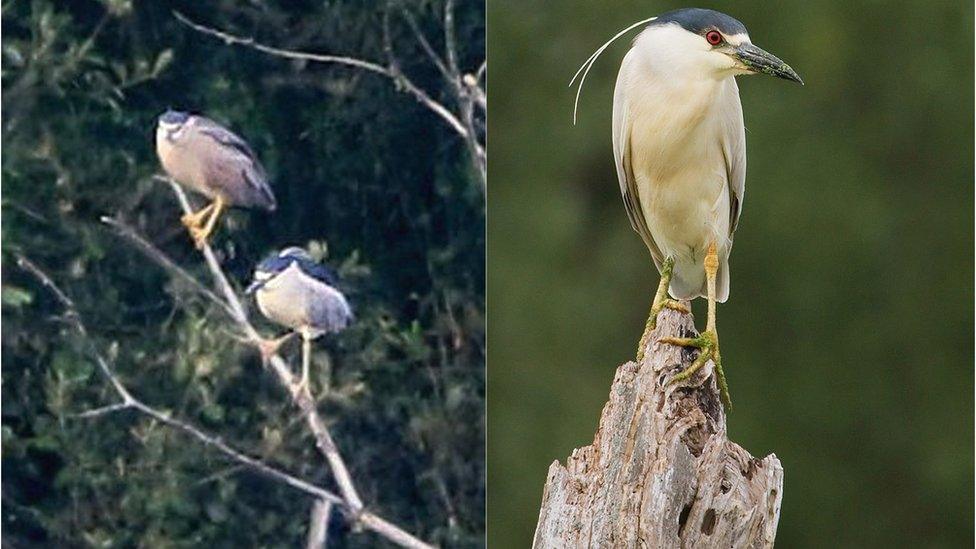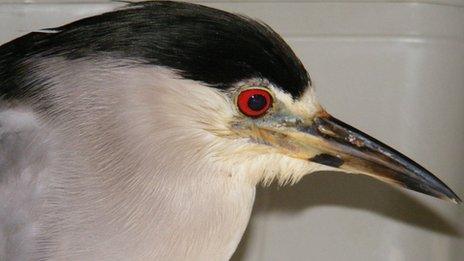Photographer captures first night herons to breed in UK
- Published

The night herons were photographed at Westhay Moor national nature reserve
A pair of nocturnal herons has bred in the wild in the UK for the first time, conservationists have revealed.
Two adult night herons and two recently fledged juveniles were photographed at a Somerset reserve by Graham Hall.
Mr Hall said he photographed the two birds from half a mile away to test his camera and was "blown away" when he realised they were night herons.
Somerset Wildlife Trust said it showed for the first time in recorded history that night herons have bred in the UK.
Black-crowned night herons are rare in the south of England, according to experts, with only around a dozen spotted in Somerset since the 1800s.
It is thought the adults either bred at the Somerset Wildlife Trust's Westhay Moor national nature reserve or the nearby Avalon Marshes site.

Black-crowned night herons are nocturnal feeders
Mr Graham was getting ready to pack up at the reserve when his friend pointed out two birds roosting half a mile away in a tree.
"I thought that would be an interesting shot and a challenge for the camera," he added.
"We thought they were bitterns but when I zoomed in - blow me - they weren't bitterns.
"I've never seen a night heron in the wild before and two birds together can only mean one thing."
'Exciting news'
Kevin Rylands, RSPB conservationist officer, said: "They are a native bird and in the past there have been some free-flying night herons around Edinburgh Zoo.
"But they have never bred here before in the wild so this is a first."
Roger Dickey, from the Somerset Ornithological Society, said it was "terribly exciting news".
"Night herons are one of southern England's rarer summer visitors.
"That they have decided to breed here for the first time on record confirms the Avalon Marshes' significance as one of the UK's most important breeding areas."
- Published8 November 2011
